Belizean Teachers Receive Training Through NASA
Teachers from all over Belize are participating in a program sponsored by NASA. The three-day workshop is part of the Global Learning and Observations to Benefit the Environment Program, or GLOBE, which seeks to connect teachers, students, scientists and citizen scientist all around the world to better understand, sustain and benefit the environment. We attended the workshop today to see what kind of activities were taking place there.
Britney Gordon, Reporting
The Global Learning and Observations to Benefit the Environment, or GLOBE project, is an international program sponsored by NASA, the US Department of State, the National Oceanic and Atmospheric Administration, and the National Science Foundation to promote citizen science around the four spheres of Earth. The program currently exists in one hundred and twenty-nine countries globally and nineteen in the Latin American region. The goal for Belize is to train teachers and spread the program throughout the country and help teachers to implement this program within their classrooms and their students.
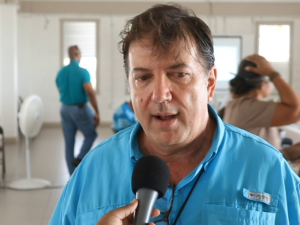
Juan Felipe Restrepo
Juan Felipe Restrepo, Mentor, GLOBE
“GLOBE is a program that is all around the world. This is sponsored by NASA, Department of the States of the United States, NOAA, and the National Science Foundation of the United States. What they promote is citizen science around the four spheres of a pedosphere, a hydrosphere and biosphere in each of those spheres. Scientists have designed have created protocols, very precise and rigorous protocols that are the citizens follow. So, our data is accurate enough to be used by them. That gives a very powerful tool for teachers because it’s called authenticity. They are going to tell the students that they are solving real problems with real tools. So, what we are doing in these three days is teaching them how to use those protocols, make the measurements, and we are trying to replicate in a way what we expect them to do in their classes.”
The program is still in its early stages in Belize, but ultimately seeks to provide educators with the tools needed to foster an environment for hands-on learning in the classroom that encourages students to participate in science throughout their daily lives. It’s accurate, reliable and suitable for investigation projects. Academic Coordinator at the Ministry of Education, Carlos Quiroz explained how the project is developing in Belize.
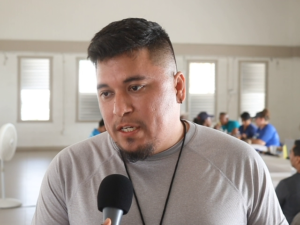
Carlos Quiroz
Carlos Quiroz, Academic Coordinator at the Ministry of Education
“So what is happening right now is that we’re in our first phase of getting teachers trained in implementing the GLOBE program. It’s not fully spread across all schools just yet. What we’re doing is we’re piloting it with some teachers from schools across Belize and we’re because one of the good things about globe is that you can tailor it to your local needs. And so, they will, working with them, they will give us insight into how it can fit within the Belizean context. So, taking a new curriculum and mapping it with the GLOBE content and the GLOBE’S activities and see which part of GLOBE can be implemented in which section of the curriculum.”
As a part of today’s activities, teachers were tasked with taking measurements of various components of the environment and comparing them to different areas every hour. Participants used the Global server app to track their observations in the NASA database in real time. Teachers also were given a profile on the Globe Program website to keep a record of their data. This training is concentrated on atmosphere and biosphere protocols designed by scientists that assure that the data that collected are accurate. We spoke with a participant from Cayo to hear what she has taken away from the program so far.
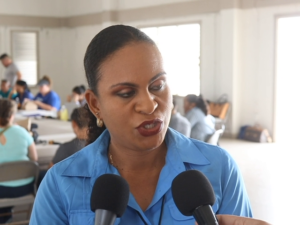
Lianne Herrera-Awe
Lianne Herrera-Awe, Education Officer
“So as an education officer, we are responsible to provide support and monitoring to teachers. And so, from that vantage point, I’m able to have teachers here with us. Interact with the environment and have students become active participants rather than passive observers. We’re walking away from chalk and talk in the classroom because that is not the way for our children to learn. They get a chance to interact with these things rather than just reading it from a textbook or just getting theoretical knowledge of what it is they should learn. We want for our students to be active participants and be of their learning. And so, this is not tailored to any one textbook or curriculum, but it is set up in such a way where anyone can take it up and own it and learn from it and there’s no right or wrong way to dig in the sand and gather data.”
The project coordinators said that GLOBE exists not only to educate, but to allow for people to care about their environment and give back to the community using the knowledge they acquire.
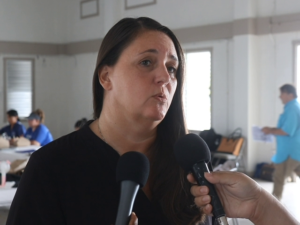
Mariana Savino
Mariana Savino, Regional Coordinator for the Latin American & Caribbean, GLOBE
“The goal for Belize is to train teachers and spread the program throughout the country and help teachers to implement this program within their classrooms and their students. And the GLO program is a science education program that connects teachers, students, scientists and citizen science all around the world to better understand, sustain and benefit the environment. So the goal is to know more about the environment and encourage people, students and teachers to protect the environment and be aware of the climate change and all the things that damage the earth.”
Britney Gordon for News Five.





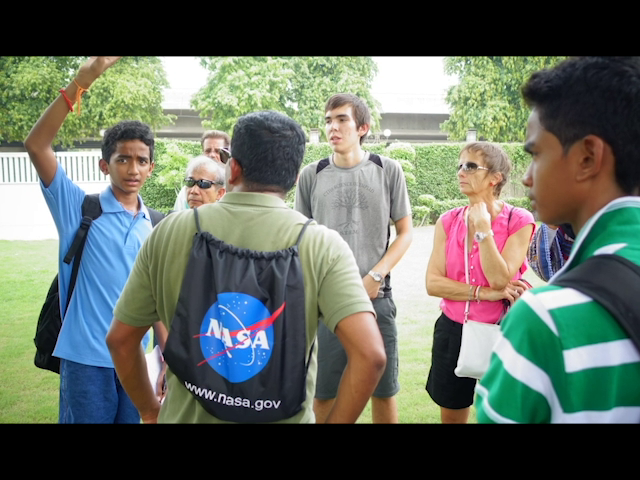
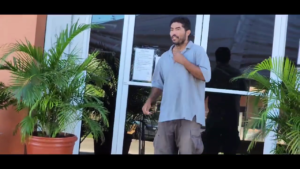
Facebook Comments